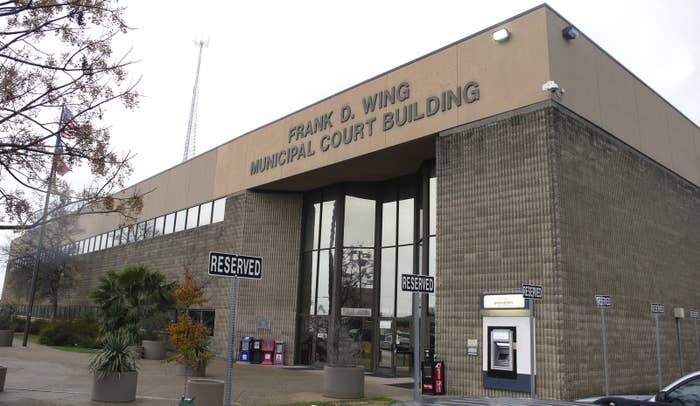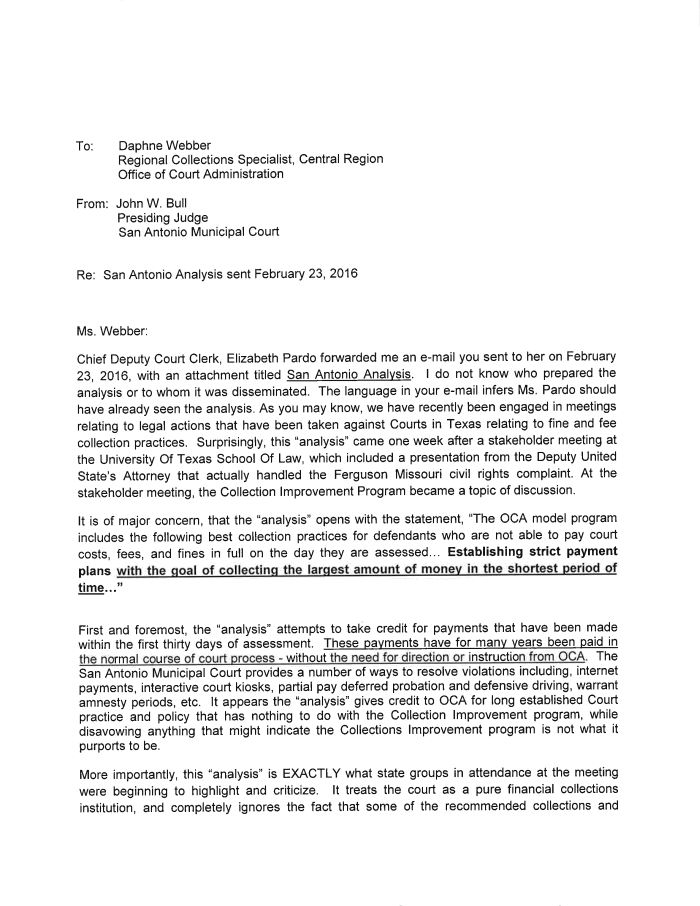
The state of Texas treats its municipal courts like “cash cows,” raking in revenue at the expense of poor people who struggle to pay fines, a judge at one of the state’s largest courts declared in a stinging letter obtained by BuzzFeed News.
“Courts are not a Pay-Day Loan company,” John W. Bull, presiding judge at San Antonio’s municipal court, wrote in a March letter to the state's Office of Court Administration.
Judge Bull was writing to protest a little-known state program that oversees the collection of court fines and fees for traffic tickets and other low-level offenses. The state takes about 30% of those fees, a cut that last year amounted to $236 million.
Bull’s letter says that the program puts municipal courts under “constant pressure to bring in ‘revenue.’”
Officials are “applying ‘best practices’ that might be relevant for banks or credit card companies,” he said, but that are “oppressive” in courtroom settings. In a memo to Bull’s court, a state collections specialist wrote that judges should devise “strict payment plans with the goal of collecting the largest amount of money in the shortest period of time, based on the defendant’s ability to pay.”
David Slayton, who heads the Texas Office of Court Administration, responded to a question about Bull’s letter by saying the state does not look to the courts as revenue sources. He pointed out that judges have discretion to waive fines for defendants who cannot afford them. “By the time it gets to the collections program,” Slayton said, “we should only be dealing with people who have the ability to pay.”
Judge Bull declined to speak with BuzzFeed News, which obtained the letter through a public records request.
Municipal courts in Texas and around the country have come under increasing scrutiny for jailing people who can’t afford their court fines. State law says that before jailing a defendant for a fine, judges must assess a defendant’s ability to pay. But a BuzzFeed News investigation found that many judges do not follow the law. (Judge Bull’s court was not cited in the investigation).
Bull’s letter echoes objections that other judges have raised to BuzzFeed News.
The state has “converted justice into a business venture,” said one municipal judge who requested anonymity out of fear of attracting attention from state officials. He said the state’s collections program hampered his ability to adjust payment plans based on defendants’ means. “The purpose of traffic enforcement is to change behavior and not to make money,” he said.
The state Judicial Council recently proposed changes to its collections guidelines that would allow for more lenient payment plans and would make explicit that the state’s collections demands do not apply in cases where defendants are too poor to pay their fines. An Office of Court Administration official said the proposed changes came in response to the BuzzFeed News investigation and to the “conversation at the national level” around poverty, court fines, and jail.


